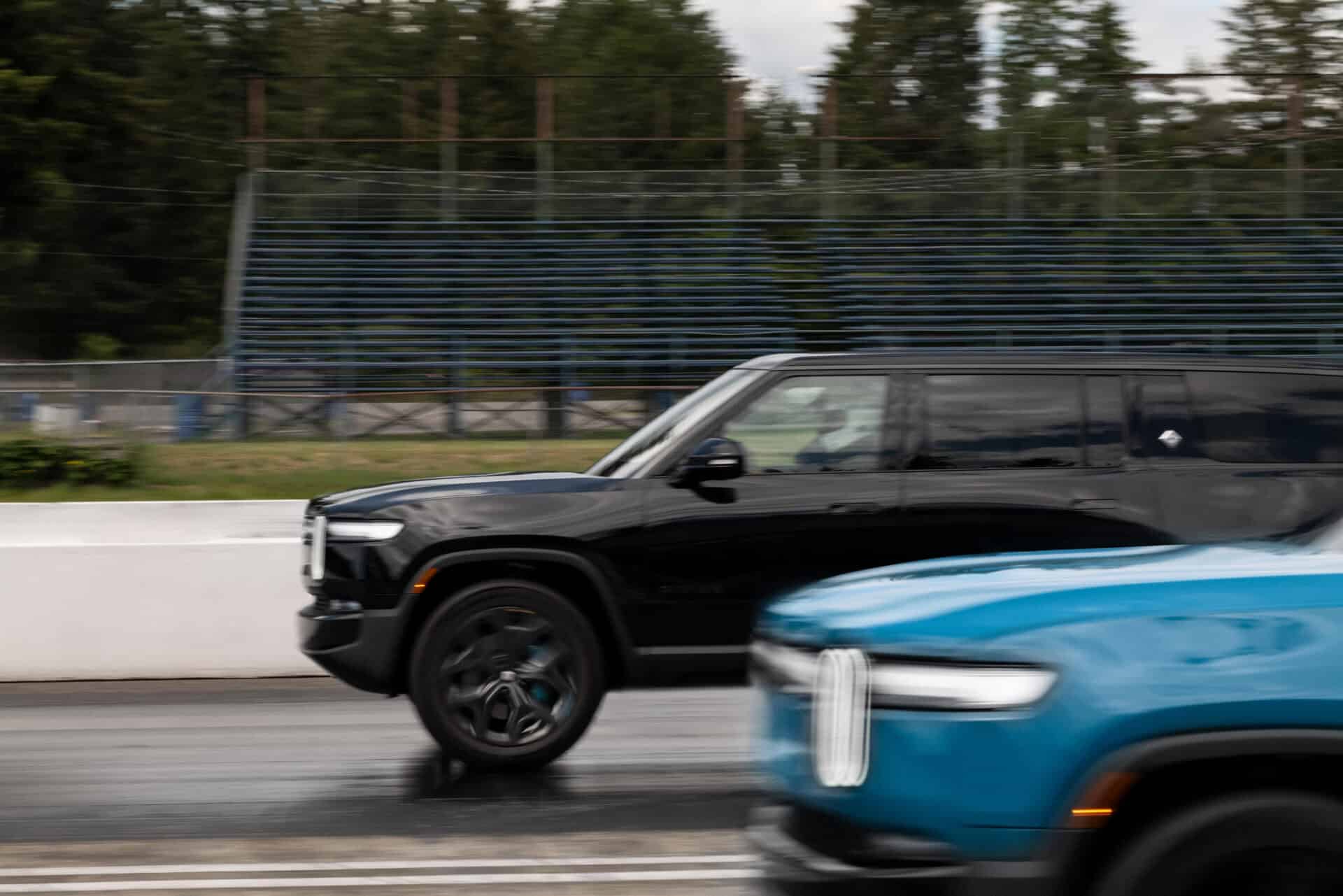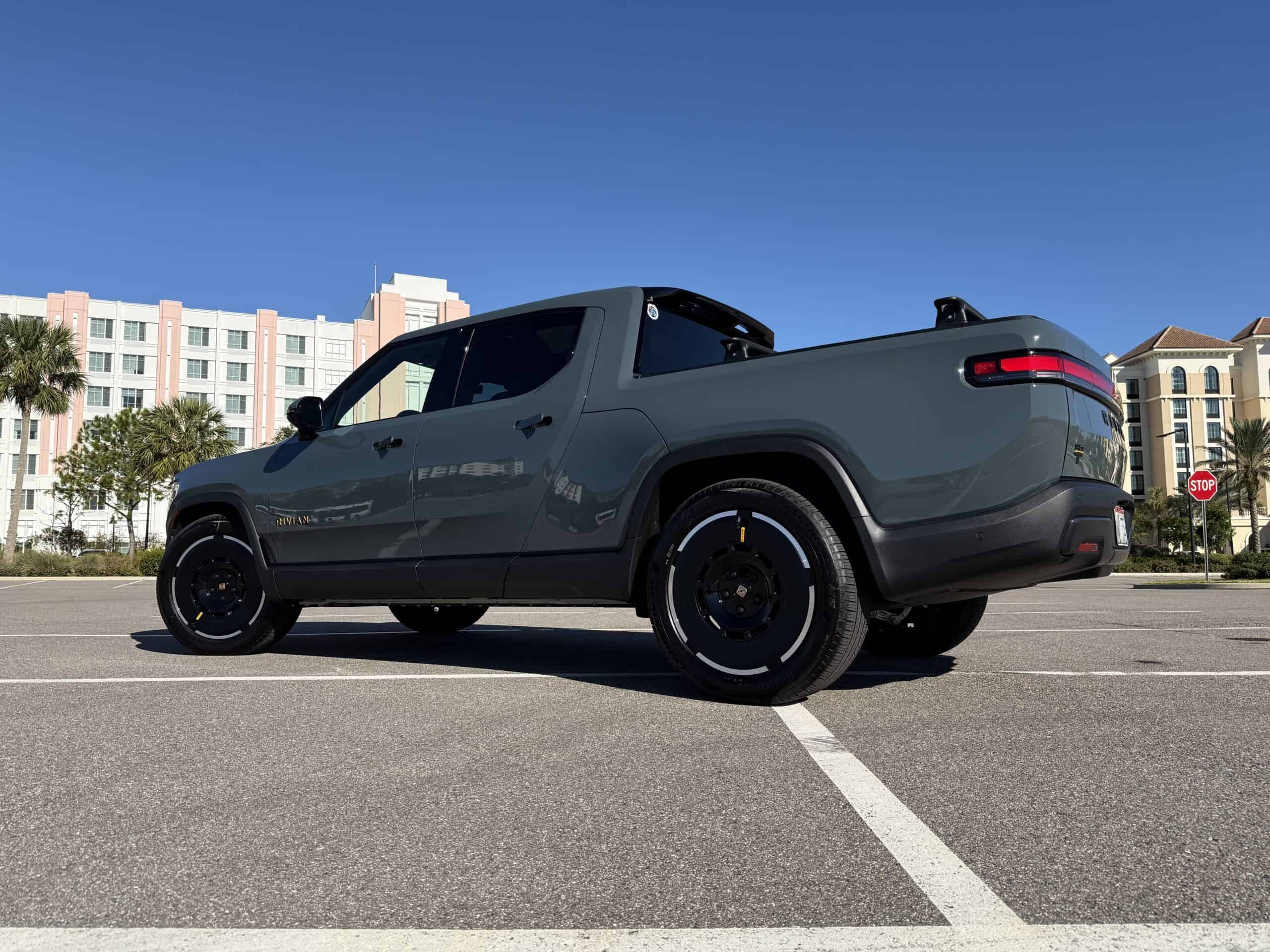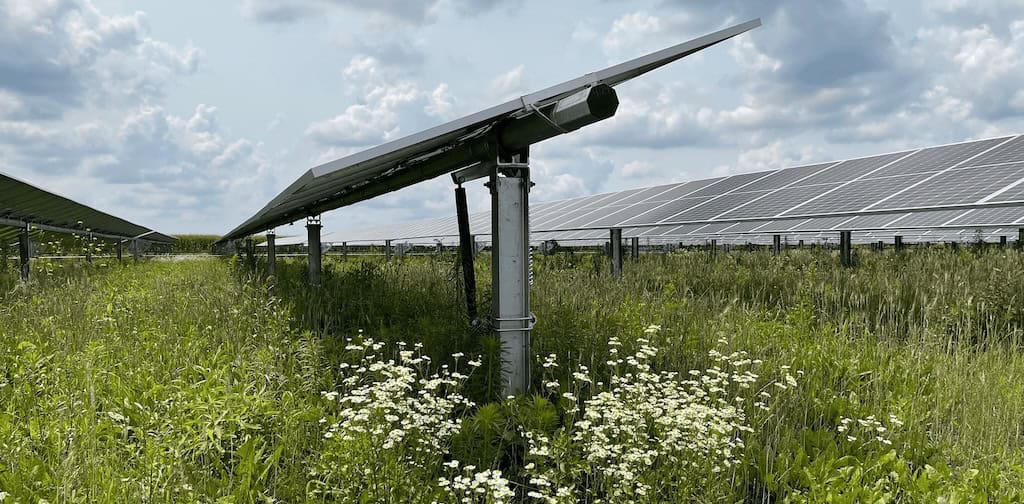Ordering a Rivian? Use code JOSE1715716 to earn 500 points on your purchase.
Editorial: Rivian Proves the EV Market Needs More Than Tesla

Let’s face it: Tesla is usually the first name that comes to mind when people think of EVs. For a long time, it was the only name. But Rivian is here to shake things up, and they’re doing it refreshingly differently. In a world where Tesla is the juggernaut, Rivian is carving out its lane—and it’s not just surviving; it’s thriving.
Of course, Rivian still isn’t turning a profit on each vehicle sold—that’s no secret. Scaling production and balancing costs is a massive challenge for any startup in the EV space. But with production ramping up and demand staying strong, it feels like Rivian is on the right path to change that sooner rather than later.
Full Disclosure
As a Rivian owner and someone who runs a Rivian-focused news website, I’ve had a front-row seat to Rivian’s growth and challenges. But my love for Rivian doesn’t mean I’m blind to the bigger picture. The truth is, I’m a fan of all EVs, and I firmly believe the world needs more options. Tesla may have led the charge, but competition pushes everyone to do better, and that’s a win for all of us.

Adventure Over Automation
If Tesla is the EV equivalent of a tech company, Rivian feels more like an outdoor gear brand that just happens to make insanely cool electric trucks. And that’s what makes Rivian stand out. The R1T and R1S weren’t designed to be commuter cars (though they can be); they’re built for adventure. A Gear Tunnel to stash your skis or fishing rods? A truck bed with an integrated air compressor? Rivian isn’t just selling EVs—it’s selling the dream of hitting the road and leaving civilization behind.
Taking Time to Get It Right
Let’s be real: Tesla has had its fair share of growing pains, especially with quality control. Rivian, on the other hand, seems to be taking a more deliberate approach. Sure, it’s not churning out vehicles at Tesla’s pace, but it’s focusing on quality over quantity. That’s refreshing, especially in an era where speed often trumps everything else.
Caring About More Than Cars
One thing Rivian is nailing is its focus on sustainability. It’s not just about making EVs—it’s about rethinking how a car company operates. From using renewable energy at its factory to aiming for carbon neutrality, Rivian is walking the walk when it comes to helping the planet. And let’s be honest, that’s the kind of thing today’s buyers care about.

Not a Copycat
Here’s the thing: Rivian isn’t trying to be Tesla. Its vehicles don’t look like Teslas. Its marketing doesn’t sound like Tesla’s. Even its charging network, the Adventure Network, is built for a different type of customer. Rivian knows exactly who it’s targeting—and it’s not afraid to do things its own way.
So, Why Does Rivian Matter?
Because the EV market needs more Rivians. Tesla may have opened the floodgates, but Rivian is showing there’s room for brands with a different vision. Whether it’s the off-road capabilities, the focus on quality, or the company’s commitment to sustainability, Rivian is proving it’s a serious contender. And honestly? That’s good for everyone—because competition means better vehicles, better innovation, and better choices for all of us.
Do you agree with me? Let me know in the comments below!


So far no major negative press about Rivian. Now they just need to deliver the vehicles to people that showed early interest. I’m going on 5+ years waiting for my pre order.
Demand for Rivian vehicles seems to be about 1/3 of the plant’s capacity of 150,000 unts per year. I am very surprised they want to build the Georgia plant when they are up sizing. Normal to build 215,000 units per year and struggle to sell 50,000 R1 + EDV per year. The 165,000 I its of available R2 capacity likely greatly exceeds ongoing demand for that vehicle. Building the Georgia plant will greatly increase overhead making cash burn even more severe.